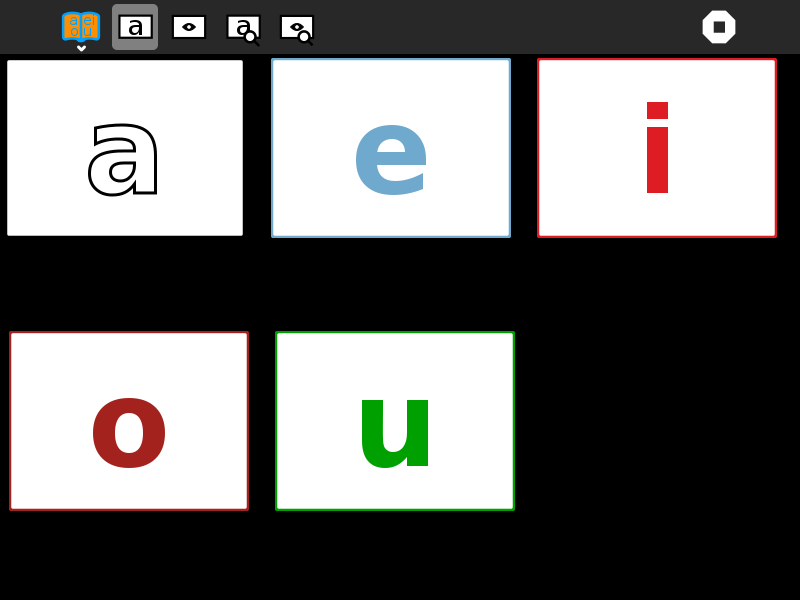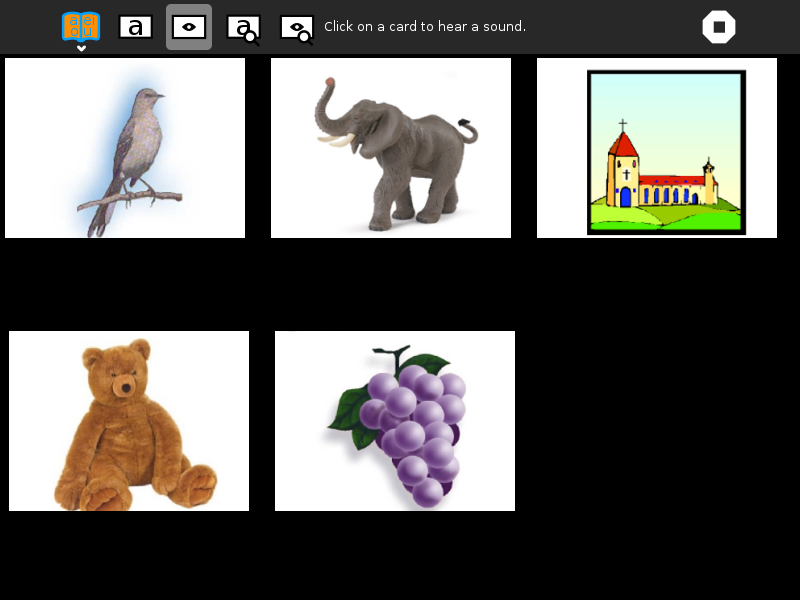AEIOU¶
About AEIOU¶
AEIOU is an activity for introducing the Spanish vowels. It displays letters and images and associated sound files, such as ‘A as in ave’. There are four modes:
- click on the letter to hear its name
- click on the picture to hear the name of the first letter in the word represented by the picture
- hear a letter name, then click on the corresponding letter
- hear a letter name, then click on the corresponding picture
(Also see I Can Read, I Know My ABCs, and Letter Match)
Where to get AEIOU¶
The AEIOU activity is available for download from the Sugar Activity Library: AEIOU
The source code is available on Github.
Using AEIOU¶
|
letter game |
picture game |
Toolbars¶

- Activity toolbar
- change the activity name; add notes to the Sugar Journal
- Letter mode
- listen to letter names
- Picture mode
- listen to letter names associated with pictures
- Find the letter 1
- hear a letter spoken and then find it
- Find the letter 2
- hear a word spoken and then find the first letter
- Stop button
- exit the activity
Learning with AEIOU¶
While far from contructionist, this activity does provide a mechanism for learning the alphabet.
Modifying AEIOU¶
As of Version 1, only a Spanish version is included. In order to add other languages, we need:
- audio recordings of the letter names
- audio recordings of the picture names
- perhaps additional pictures, in order ensure there is a picture for each letter of the alphabet
There is a language-specific database file maintained in ./lessons/??/alphabet.csv where ?? is the 2-digit language code. The format of the CSV file is:
| letter | word | color (#RRGGBB) | image file | sound file (image) | sound file (letter) |
|---|---|---|---|---|---|
| R | (r)atón | #F08020 | raton.png | raton.ogg | r.ogg |
Extending AEIOU¶
It would, of course, be fun to let the learner add their own pictures and sound recordings.
Where to report problems¶
You are welcome to leave comments/suggestions on AEIOU/issues.

